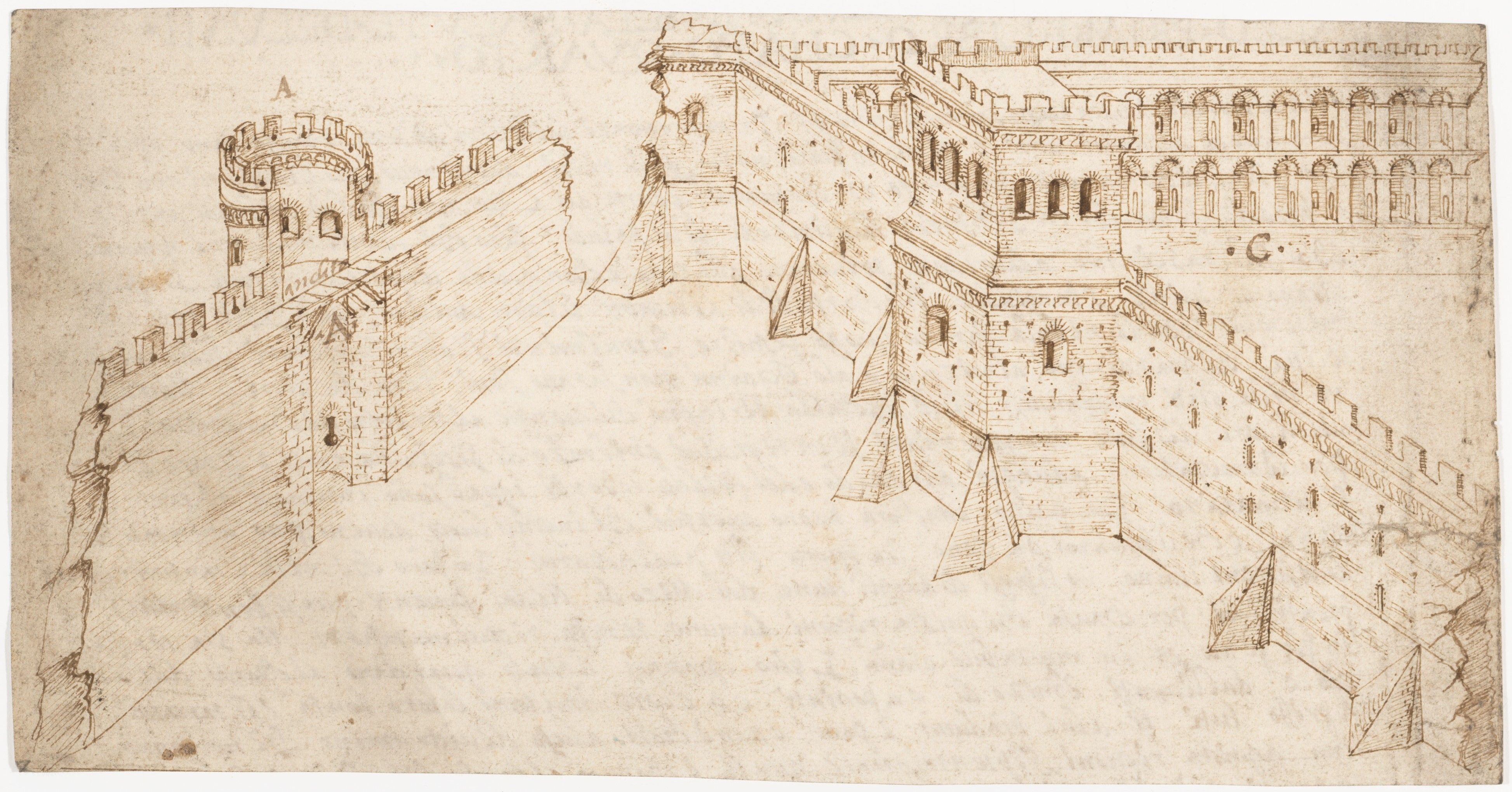Vitruvius, On Architecture 1.4.1–1.4.6.
See also Varro, On Agriculture 1.12.2–1.12.4, who imagines tiny animalia being actually inhaled, with Vivian Nutton, “The Seeds of Disease: An Explanation of Contagion and Infection from the Greeks to the Renaissance,” Medical History 27 (1983): 1–34, esp. 11 on Varro.
Galen has an ambivalent relationship to a theory of contagion precisely because it undermines his moralizing: see Nutton, “Seeds of Disease,” 15–16 and Brooke Holmes, “Galen on the Chances of Life,” in Victoria Wohl ed., Eikos: Probabilities, Hypotheticals, and Couterfactuals in Ancient Greek Thought (Cambridge: Cambridge University Press, 2014), 230–250, esp. 242–247.
For both periods—early modern and twentieth century— in relationship to ancient Greek political theory, see Chiara Bottici, “Rethinking the Biopolitical Turn: From the Thanatological to the Geneapolitical Paradigm,” Graduate Faculty Philosophy Journal 56 (2015), 175–197, 178 with nn. 17–18 on Botero; and below, n. 36 on bios and biopolitics.
(Hippocrates) Epidemics VI 5.1.
Plato, Republic 1, 341e.
Pl. Charm. 169c. The dialogue is generally placed in Plato’s earlier “Socratic” period before the Republic.
(Arist.) Phys. Probl. 7.7. On the conceptualization of this problem as a “natural” problem in the book, see Brooke Holmes, “Pain, Power, and Human Community: Empathy as a ‘Physical Problem’ in Pseudo-Aristotle and Beyond,” in Katherine L. Hsu, David Schur, and Brian Sowers eds., The Body Unbound: Literary Approaches to the Classical Corpus, 13–56 (New York: Palgrave Macmillan, 2021), where I also examine the implications of seeing the person in pain as enslaved (judicial torture being limited to enslaved persons at Athens).
Hume 1978: 320, cited at Sayre-McCord 2015: 215n.8.
Pl. Rep. 3, 395c–395e, 396c–396e, 397a–398a.
Pl. Rep. 10, 605d4. On the mixed pleasure and pain of watching tragedy, cf. Pl. Phlb. 48a.
On the dangers of mimesis for Plato, see Rep. 3, 394e–396e; Laws 7, 814e–817a, with Stephen Halliwell, The Aesthetics of Mimesis: Ancient Texts and Modern Problems (Princeton: Princeton University Press, 2002), esp. 72–97. In the Laws, Plato delegates the mimesis of base characters to the enslaved or metics: no free person is allowed to train in such forms of representation (Laws 7, 816e). The entanglement of mimesis and enslavement continues through the Roman period. On forced performance as a site for the exercise of domination over the enslaved in the American context, see Saidiya V. Hartman, Scenes of Subjection: Terror, Slavery, and Self-Making in Nineteenth-Century America (New York: Oxford University Press, 1997), esp. 17–78.
See esp. Plato, Republic 5, 458d–458e.
Plato, Republic 5, 459a–459b, 460d on infanticide.
Republic 3, 412e–414c.
Plato, Republic 5, 459d–459e–460b. The men who display the best natures are rewarded with sexual access to many women in the interest of increasing their offspring (see also 468c).
See Plato, Republic 5, 461d–461e, on precautions against incest that reconfigure the parent-child bond.
Plato, Republic 3, 414b–415c, 416e–417a.
Plato, Republic 5, 459d reintroduces the idea of the lie as medicine used by a brave (literally: masculine) doctor.
Plato, Republic 5, 462d; cf. 464a–464b. The idea that the whole body feels the pain of the smallest part appears in a medical text from the early fourth century: (Hippocrates) On Places in a Human Being 1.
Sextus Empiricus, Against the Professors 9.78. The attention to the pain of the finger as implicated in the experience of the whole points to the flat ontology produced by cosmological sympathy in the Stoics, which exists in tension with the hierarchy of a scala naturae, much as already in the Republic, nature is both common and hierarchical. See further, Brooke Holmes, “On Stoic Sympathy: Cosmbiology and the Life of Nature,” in Emanuela Bianchi, Sara Brill, and Brooke Holmes (eds.), Antiquities beyond Humanism, 239–270 (Oxford: Oxford University Press, 2019).
Plato, Republic 8, 562e–563b.
Plato, Laws 3, 701a; Luce Irigaray, Speculum of the Other Woman, trans. G. C. Gill (Ithaca, NY: Cornell University Press, 1985).
Jacques Rancière, The Hatred of Democracy, trans. Steve Corcoran (London: Verso, 2006), 40–41.
Mika Ojakangas, On the Greek Origins of Biopolitics: A Reinterpretation of the History of Biopower (New York: Routledge, 2016).
Demetra Kasimis, The Perpetual Immigrant and the Limits of Athenian Democracy (Cambridge: Cambridge University Press, 2018), 116. Kasimis is also critically engaging Arlene Saxonhouse’s rich and provocative reading of Book 8, which singles out the fluidity of identity categories in democracy as the primary target of Socrates’ attack: Arlene Saxonhouse, “Democracy, Equality, and Eidē: A Radical View from Book 8 of Plato’s Republic,” American Political Science Review 92.2 (1998), 273–283.
Nicole Loraux, The Children of Athena: Athenian Ideas about Citizenship and the Division between the Sexes, trans. C. Levine (Princeton: Princeton University Press, 1993).
See esp. Susan Lape, Race and Citizen Identity in the Classical Athenian Democracy (Cambridge: Cambridge University Press, 2010).
Kasimis, Perpetual Immigrant, 95–96, 129–131.
Ibid. 119.
Andrés Henao Castro, Antigone in the Americas: Democracy, Sexuality, and Death in the Settler Colonial Present (Albany: State University of New York Press, 2021), 17.
Plato, Phaedo 96a–99c.
Plato, Republic 3, 407a–408a.
Emanuela Bianchi, “Nature Trouble: Ancient Physis and Queer Performativity,” in Emanuela Bianchi, Sara Brill, and Brooke Holmes eds., Antiquities beyond Humanism, 211–238 (Oxford: Oxford University Press, 2019), esp. 228–236.
There are also important disanalogies between soul and body that mark the limits of the health/disease model for an account of justice, virtue, and vice that I cannot discuss here. See further Sara Brill, Plato on the Limits of Human Life (Bloomington: Indiana University Press, 2013), esp. 111–114, on the Republic, and on the shifting terms of the medical analogy in Plato, Brooke Holmes, “Body, Soul and the Medical Analogy in Plato,” in J. Peter Euben and Karen Bassi (eds.), When Worlds Elide: Classics, Politics, Culture, 345-85. Lanham, Md.: Rowman & Littlefield, 2010.
On the bios of biopolitics and the Greeks, see Brooke Holmes, “Bios,” Political Concepts: A Critical Lexicon 5 (2019), ➝.
For superb feedback, editing, and encouragement on this essay, I am very grateful to Nick Axel, Beatriz Colomina, Demetra Kasimis, Karan Mahajan, Tony Vidler, and Mark Wigley.
